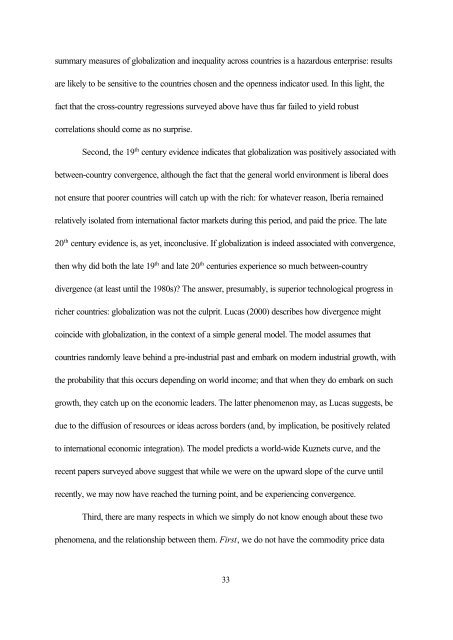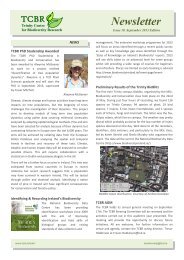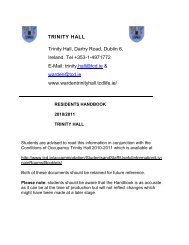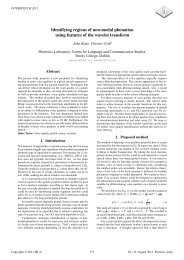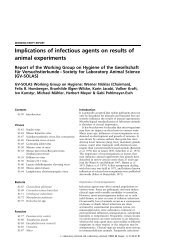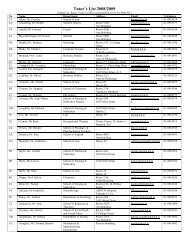Globalization and Inequality - Trinity College Dublin
Globalization and Inequality - Trinity College Dublin
Globalization and Inequality - Trinity College Dublin
You also want an ePaper? Increase the reach of your titles
YUMPU automatically turns print PDFs into web optimized ePapers that Google loves.
summary measures of globalization <strong>and</strong> inequality across countries is a hazardous enterprise: results<br />
are likely to be sensitive to the countries chosen <strong>and</strong> the openness indicator used. In this light, the<br />
fact that the cross-country regressions surveyed above have thus far failed to yield robust<br />
correlations should come as no surprise.<br />
Second, the 19 th century evidence indicates that globalization was positively associated with<br />
between-country convergence, although the fact that the general world environment is liberal does<br />
not ensure that poorer countries will catch up with the rich: for whatever reason, Iberia remained<br />
relatively isolated from international factor markets during this period, <strong>and</strong> paid the price. The late<br />
20 th century evidence is, as yet, inconclusive. If globalization is indeed associated with convergence,<br />
then why did both the late 19 th <strong>and</strong> late 20 th centuries experience so much between-country<br />
divergence (at least until the 1980s)? The answer, presumably, is superior technological progress in<br />
richer countries: globalization was not the culprit. Lucas (2000) describes how divergence might<br />
coincide with globalization, in the context of a simple general model. The model assumes that<br />
countries r<strong>and</strong>omly leave behind a pre-industrial past <strong>and</strong> embark on modern industrial growth, with<br />
the probability that this occurs depending on world income; <strong>and</strong> that when they do embark on such<br />
growth, they catch up on the economic leaders. The latter phenomenon may, as Lucas suggests, be<br />
due to the diffusion of resources or ideas across borders (<strong>and</strong>, by implication, be positively related<br />
to international economic integration). The model predicts a world-wide Kuznets curve, <strong>and</strong> the<br />
recent papers surveyed above suggest that while we were on the upward slope of the curve until<br />
recently, we may now have reached the turning point, <strong>and</strong> be experiencing convergence.<br />
Third, there are many respects in which we simply do not know enough about these two<br />
phenomena, <strong>and</strong> the relationship between them. First, we do not have the commodity price data<br />
33


